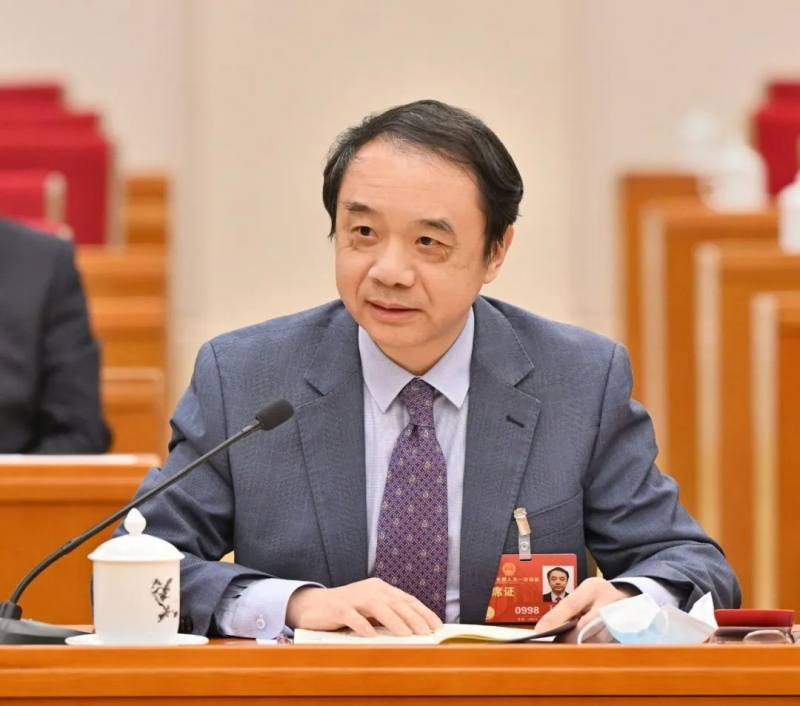Wang Yifang suggests accelerating the construction of national laboratories for research

Wang Yifang, a deputy to the National People's Congress, academician of the Chinese Academy of Sciences (CAS) and director of the Institute of High Energy Physics of CAS, is a member of the Strategic Advisory Council of the Greater Bay Area Science Forum. [Photo provided to en.gsf.org.cn/]
National laboratories have become an important carrier for developed countries to assume a prominent role in scientific and technological innovation.
Wang Yifang, a deputy to the National People's Congress, academician of the Chinese Academy of Sciences (CAS) and director of the Institute of High Energy Physics of CAS and a member of the Strategic Advisory Council of the Greater Bay Area Science Forum, put forward his suggestions on building national laboratories.
Both large and small research institutions have their own advantages in constructing scientific research systems. Small ones have better management efficiency and clear responsibilities bestowed on each person. In contrast, large ones (national laboratories) have a large number of professionals in various fields and can handle key projects and major scientific research missions independently, said Wang.
A good scientific research system should design institutes (laboratories) of an appropriate scale and organizational form according to professional characteristics, task objectives and needs. It should establish a scientific and complete research structure with minimal costs using the most effective way to meet the needs of the country and the people, Wang said.
Wang said two types of laboratories should be set up. One is a large interdisciplinary research base of basic science and applied technology, with a major scientific research infrastructure as a platform and a major national task as a guide.
Its mission is to move towards the world's scientific and technological frontier and achieve major breakthroughs. Technologies developed in basic research should be utilized to provide an international platform for interdisciplinary basic research. Relevant applied research is carried out to promote technology transfer and transformation.
The second is national laboratories for application and industrial needs. In such fields as biomedicine, information networks, artificial intelligence, energy transportation, materials and chemical industry, the laboratories' research directions, plans and goals in different time spans should be set up according to national needs. The labs will gather the strength of the industries, universities, research institutions and enterprises to carry out research. Those national laboratories provide technologies to the industry and support its development, instead of the solitary way in the past that only provided products to the market.
Wang said that the establishment of national laboratories should be considered deliberately. It is necessary to take the international advanced modern research institutes and successful national laboratories at home and abroad as examples and learn from their mission, positioning, objectives, tasks and management system to improve the management of funds, personnel, assessment, task allocation, international cooperation and so on.
The establishment of national laboratories should be in line with existing scientific research institutions to avoid disordered competition and beware of the impact on the smooth operation of those institutions and the implementation of national tasks.












